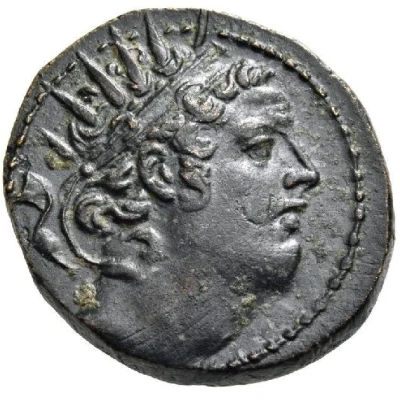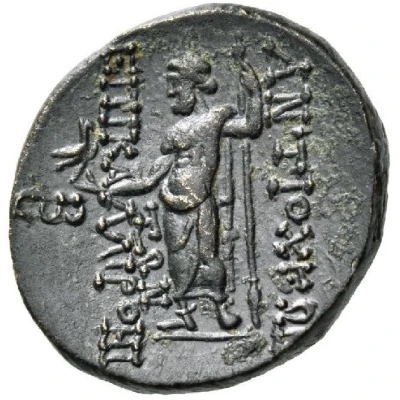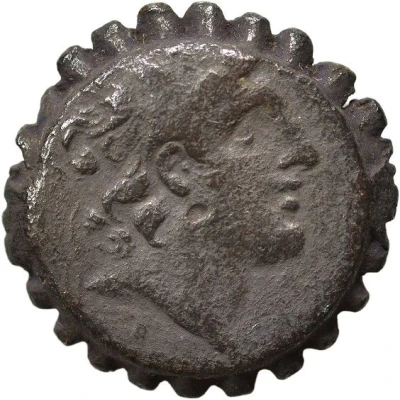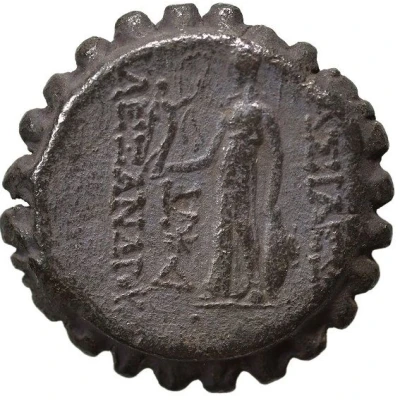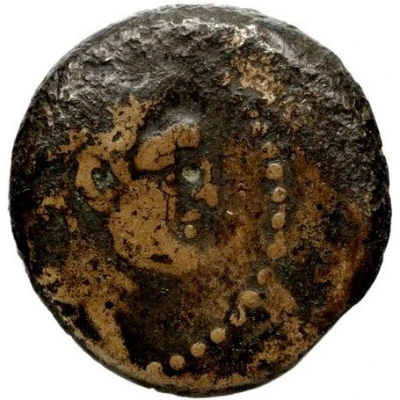
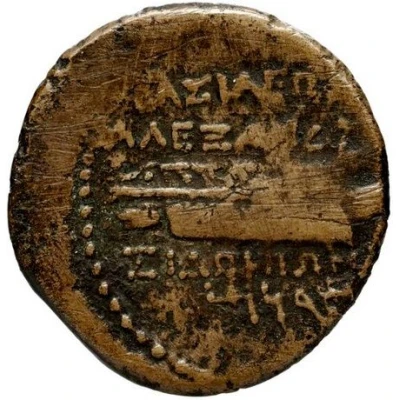

© Bibliothèque nationale de France / Gallica
Dichalkon - Alexander I Balas 151 BC - 146 BC
| Bronze | 6 g | 19 mm |
| Issuer | Seleucid Empire (Seleucid Empire (305 BC - 64 BC)) |
|---|---|
| King | Alexander I Balas (150 BC - 145 BC) |
| Type | Standard circulation coin |
| Years | 151 BC - 146 BC |
| Value | Dichalkon (1⁄24) |
| Currency | Drachm |
| Composition | Bronze |
| Weight | 6 g |
| Diameter | 19 mm |
| Shape | Round (irregular) |
| Technique | Hammered |
| Orientation | Variable alignment ↺ |
| Demonetized | Yes |
| Updated | 2024-10-10 |
| Numista | N#425782 |
|---|---|
| Rarity index | 97% |
Reverse
Apollo standing left, holding arrow and grounded bow; palm branch to outer left, monogram in exergue.
Scripts: Greek, Phoenician
Lettering:
ΒΑΣΙΛΕΩΣ
ΑΛΕΞΑΝΔΡΟΥ
ΣIΔΩNIΩN
𐤌𐤍𐤃𐤑𐤋
Translation:
King Alexander (I, Balas)
Sidon
Interesting fact
One interesting fact about the Dichalkon coin of Alexander I Balas is that it features a unique blend of Greek and Persian design elements. The obverse side of the coin depicts a portrait of Alexander I Balas wearing a royal diadem, while the reverse side shows a seated Apollo holding a lyre, surrounded by Greek inscriptions. This fusion of Greek and Persian styles reflects the cultural diversity of the Seleucid Empire, which was a major power in the ancient Near East during the 3rd and 2nd centuries BC.
